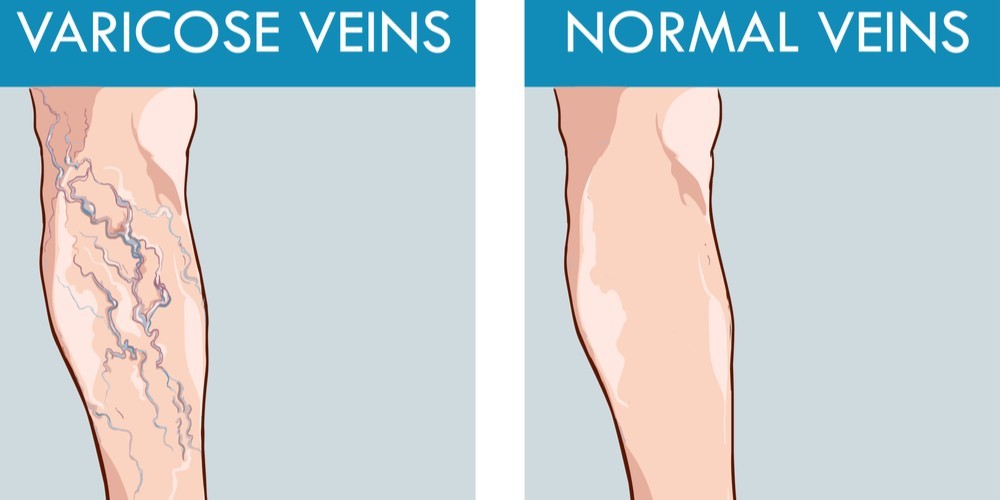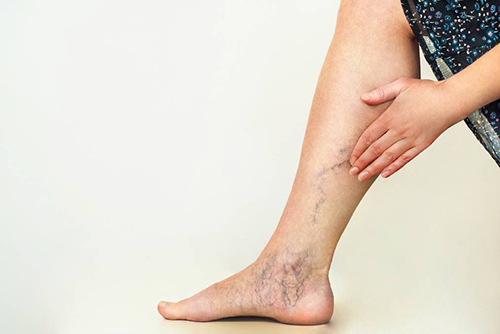
The key factor to develop varicose veins is a sedentary and inactive lifestyle. The blood circulation slows down. Introducing activities into your lifestyle is a great way to combat pooling of blood in the lower limbs.
Many people lead an inactive lifestyle due to their office jobs. Between commute to work, sitting at a desk all day, commute back home, a quick dinner and then collapsing on bed after a long tiring day, people struggle to take time for exercise. This results in slowing down the blood circulation. Therefore, exercise is the best way to get the blood pumping from your legs back to your heart to prevent this from happening.
Here are the ten best ways to prevent varicose veins

- Exercise: Yoga, meditation, swimming, walking, running are some effective exercises that can help to get the calf muscles working without excessive strain. Exercising regularly is a solution not only to prevent varicose veins but a lot of other health problems such as blood pressure, skin problems, and digestive problems.
- Dietary changes: Sodium-rich food must be avoided as it causes the body to retain water. Food high in potassium can reduce water retention – potatoes, leafy vegetables, almonds, pistachio nuts, fish such as salmon and tuna. Fiber intake also keeps the bowel moving and prevent constipation that includes whole-grain foods, flax seeds, and nuts. As obesity is the prime reason for varicose veins, shredding weight reduce the pressure on the veins. It can alleviate swelling and discomfort.
- Compression stockings: Compression stockings or socks are apply pressure on your veins. This aids the muscles and veins to move blood towards your heart. These are usually worn by athletes, sports persons while playing as it helps them reduce strain on muscles and keep the blood circulation smooth. It is better to consult a doctor before buying compression stockings as they come in different sizes.
- Consume more flavonoids: Add flavonoids to your diet as they may help shrink the varicose veins. The flavonoid foods are Vegetables such as broccoli, spinach, onions, bell peppers, as well as Citrus fruits, cherries, blueberries along with cocoa, and garlic. These flavonoids also help to reduce blood pressure and relax blood vessels which in turn reduces varicose veins.
- Avoid very hot baths: Heat dilates your veins and slows down the circulation in your legs in a number of ways. This is applicable for long time sun baths and saunas.
- Non-restrictive clothing: Wearing tight fitting clothes can also restrict blood flow. Even wearing flats in place of high heels can prevent you from varicose veins.
- Elevate your legs: Take 10 minutes a day and elevate your legs above your heart. This exercise improves your blood circulation. If you sit for long hours then it is advised to change the position of your legs or elevate them for some time.
- Anti-inflammatory diet: Are you consuming too much refined sugar or caffeine or alcohol? Beware! You are likely to stimulate an inflammatory reaction to your body which further makes you obese. Obesity is a major contribution to developing varicose veins. Being overweight puts unnecessary weight on your legs and makes it more difficult for blood in your legs to return back to the heart.
- Massage: A gentle massage to the affected area can be an excellent way to stimulate your blood. You may use massage oils or moisturizer for optimal effects. Try lavender or chamomile that have anti-inflammatory properties and can be very relaxing.
- Keep moving: Avoid sitting or standing for long hours. Do not sit or stand for too long. Get up, move around or change position frequently to keep the blood flowing. Visit your co-worker to discuss your work or try to walk during your breaks. Long sitting hours can put you into trouble.
Conclusion
Varicose veins when left untreated, vein valves tend to get weaker causing varicose veins to get worse. People with severe varicose veins may seek laser treatment. Talking to a doctor will help you make the decision about the severity and right treatment to cure varicose veins.







